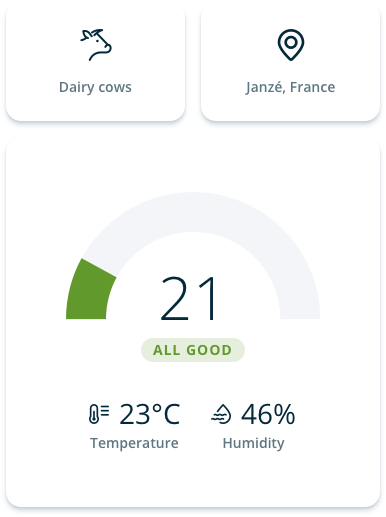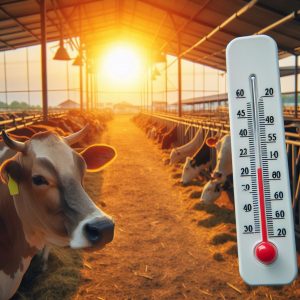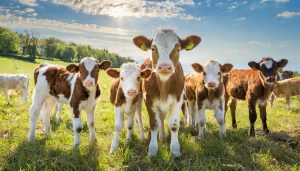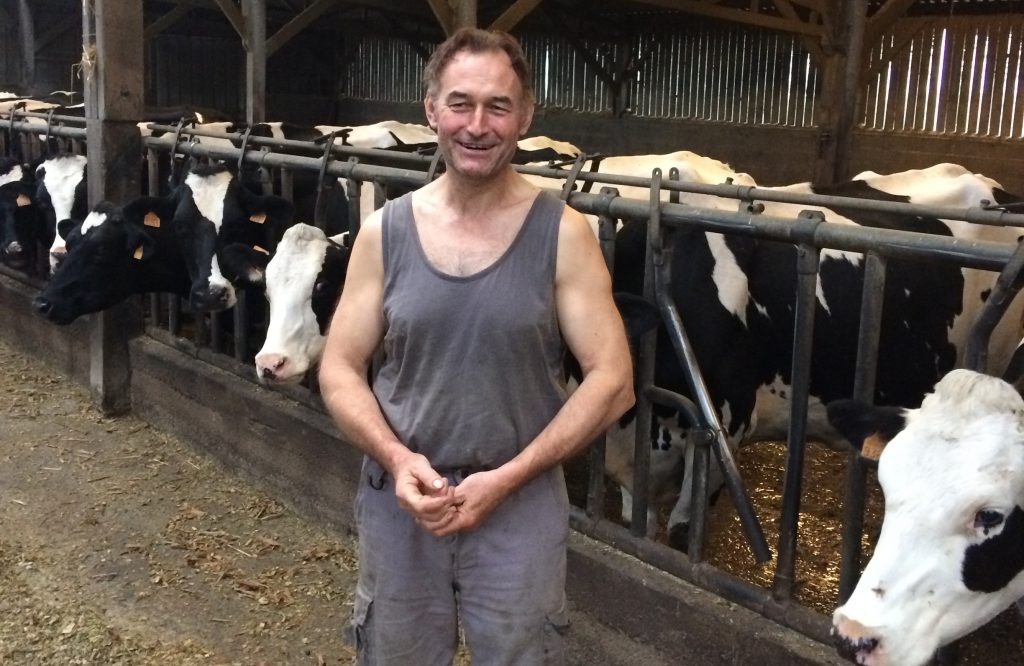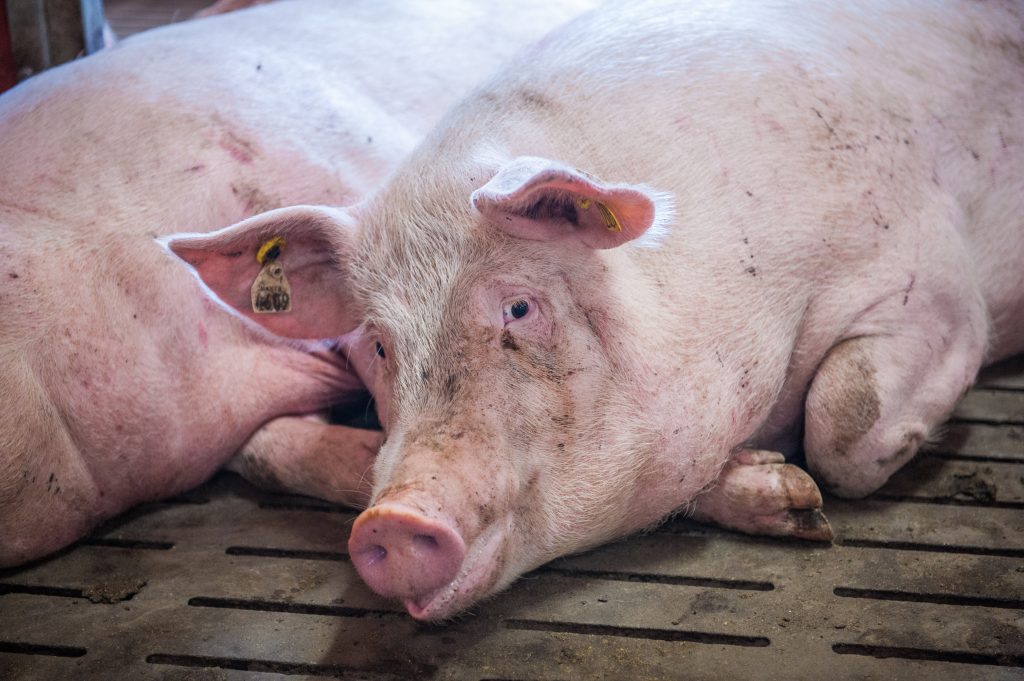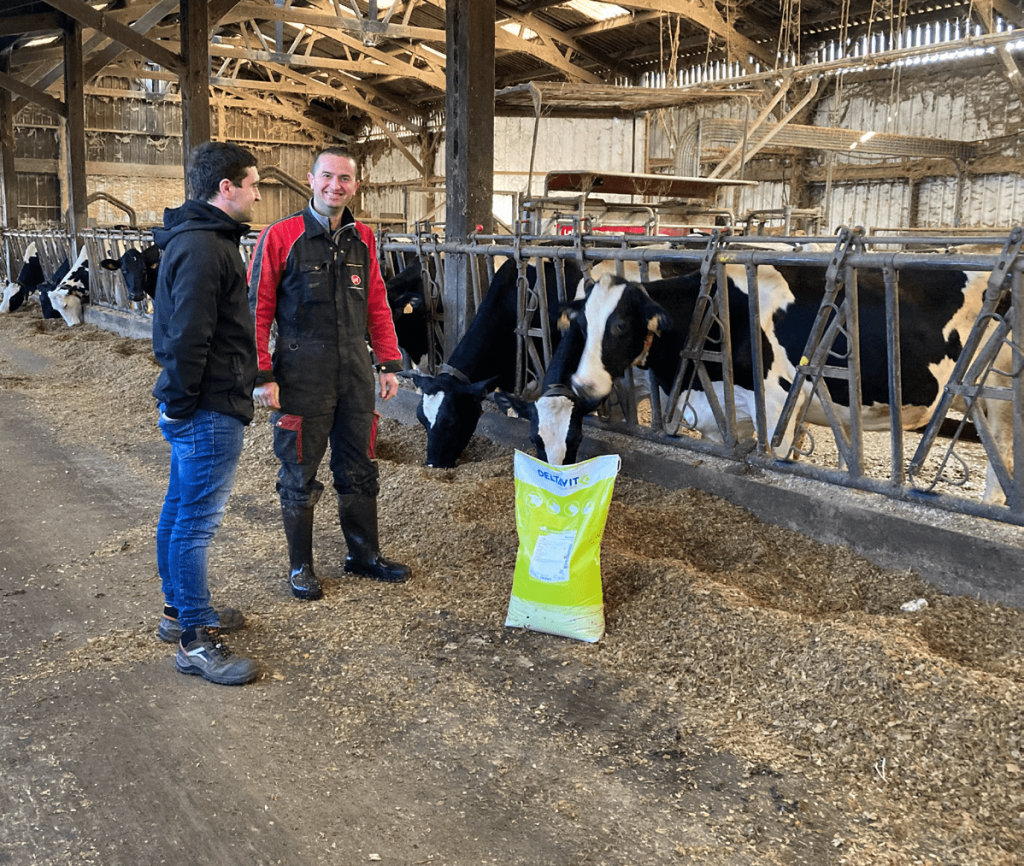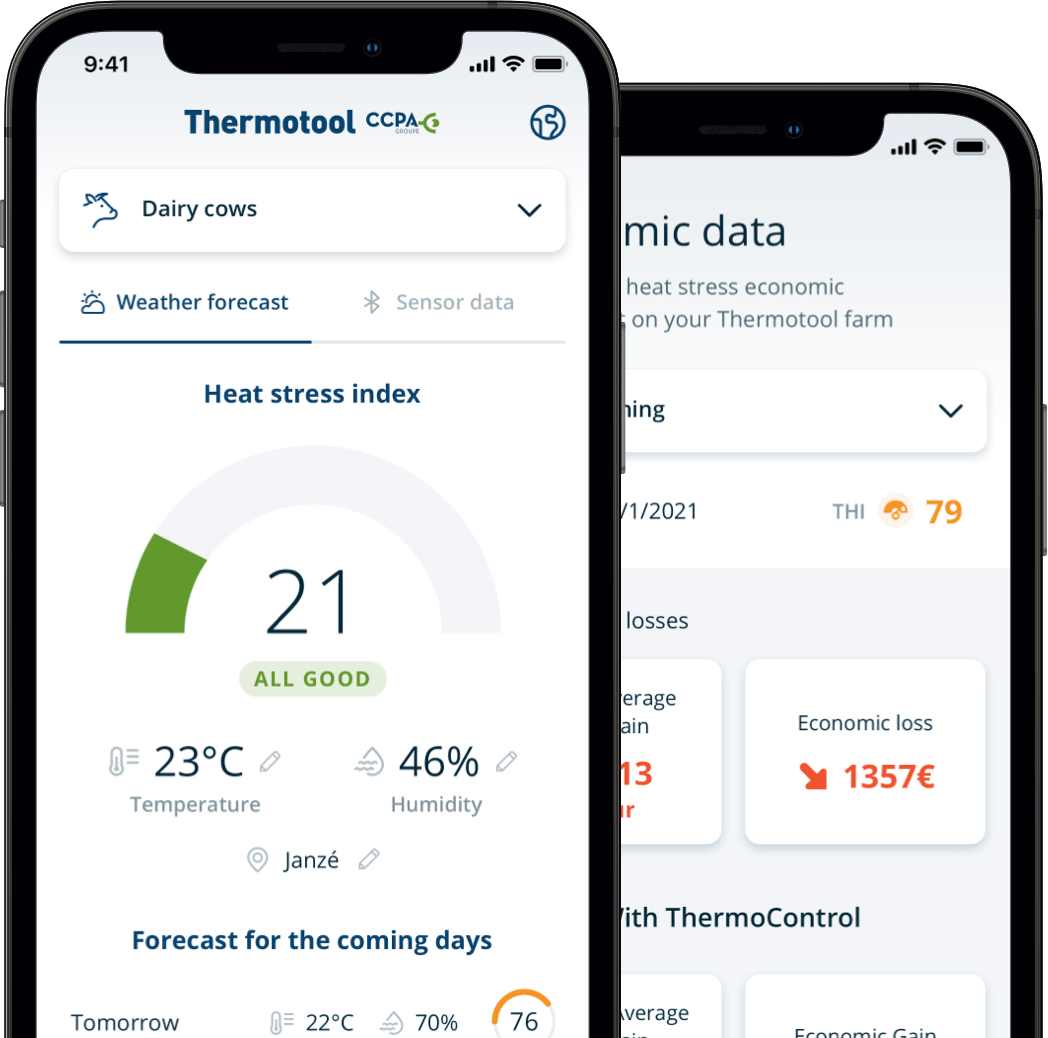To support the comfort of the animals during periods of heat stress

Heat stress
Periods of high heat, particularly during the summer, alter the comfort of livestock, which are subject to heat stress. This stress affects the physiology of the animals: their body temperature, their respiratory frequency as well as their water consumption increase strongly. This phenomenon is called heat stress and leads to a decrease in the animals’ intake and performance.
Our action
In response to these delicate phases during which the comfort and well-being of the animals must remain a priority, the CCPA Group has developed the Thermo range of digital products and tools. The result of our expertise, these solutions support the natural means available to the animals to fight against thermal stress.
Our solutions by species
We provide you with advice to fight the impact of thermal stress in your breeding. CCPA has developed specific products for this delicate period and adapted to the physiology of each species.
